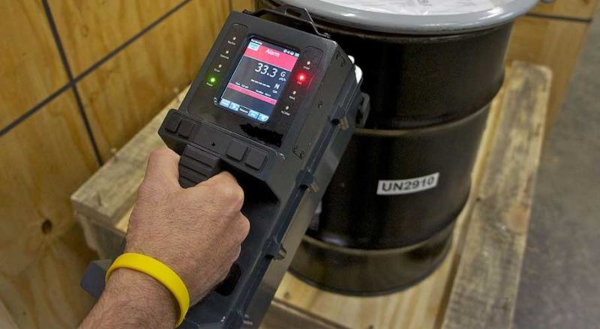Giving a major fillip to India’s security ecosystem, the Union government has decided to install Radiation Detection Equipment (RDE) at all eight Integrated Check Posts (ICPs) on the nation’s borders with Pakistan, Bangladesh, Myanmar, and Nepal, to detect smuggling of radioactive materials.
India has about 8 Integrated Check Posts adjacent to neighboring countries from where our import and export work is done by vehicles. The names of those borders are Attari – Pakistan border; Petrapole, Dawki, Agartala and Sutarkani – Bangladesh Border; Moreh – Myanmar border, and Raxaul & Jogbani – Nepal Border.
Acting swiftly, the government has already issued a tender for installing RDE at all the eight ICPs on the borders. As per the Request for Proposal (RPE) document, the radiation equipment will be installed within three months of an order being placed. This could mean an early 2022 deadline.
“It is vital to equip border crossings, Integrated Check Posts, and Land Ports, since these may be used as smuggling routes for materials needed for a nuclear device or radiological dispersal device,” the RPE document states.
With the procurement of RDE, India intends to deter and detect illicit trafficking of radioactive materials across international borders. Notably, the idea is to facilitate safe and secure movement of trade across all land ports of India as normal X-ray equipment is infective against the detection of radioactive material.
The development has come in the backdrop of developing situations in Afghanistan & Pakistan and follows a nearly two-year-long exercise by the Indian government to seek inputs on system requirements for such RDE globally.
Why RDE is a gamechanger in the security landscape of India
The Integrated Check Posts (ICPs) at the borders regulate the entry and exit of passengers and goods. To regulate the security of cargo movement across ICPs, Security agencies at the ICPs use Radiation Detection Equipment (RDE), which monitors trucks and their cargo. These machines are so large in size that trucks and trailers can easily pass through it. Further, RDE is capable of raising separate gamma and neutron radiation alarms and generating video frames of target objects.
The RDE also easily distinguishes between “special nuclear material and naturally occurring radiation in fertilizer or ceramics as well as high-energy gamma isotopes which are an attribute of recycled uranium.
Simply put, as soon as the RDE starts, nothing illegal can come inside India from the border of any neighboring country adjacent to India. Meaning that, from a needle to a bomb without permission can not come inside the country.
To date, the first RDI has been successfully deployed along the Indo-Pak Attari border, and the remaining seven integrated check posts are going to be installed soon.
Source: NewsonAir
You may also like
-
IAF Aircraft Set Course For Exercise Eastern Bridge VII At Oman
-
IAF Set To Host The Indian Defence Aviation Exposition-II At Jodhpur
-
Defence Secretary to co-chair 5th India-Philippines Joint Defence Cooperation Committee meeting in Manila
-
Simultaneous Launch Of ‘malpe And Mulki’, Fourth And Fifth Ships Of Asw Swc (Csl) Project
-
Aatmanirbharta in Defence: MoD signs Contract with HAL for 240 AL-31FP Aero Engines for Su-30MKI Aircraft
